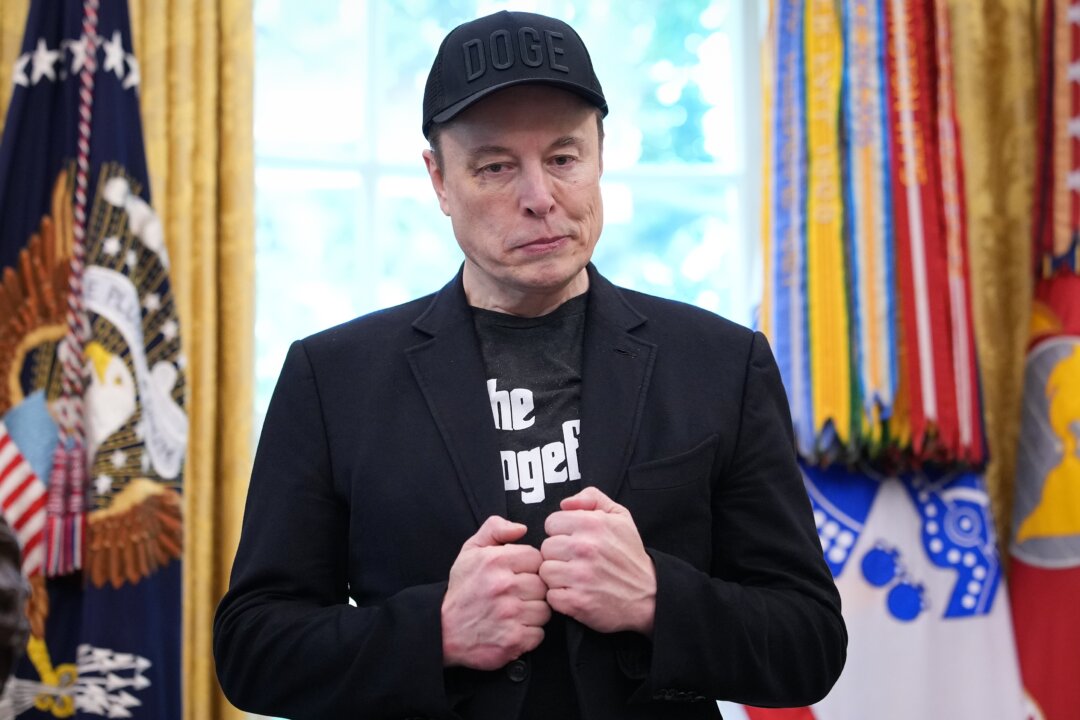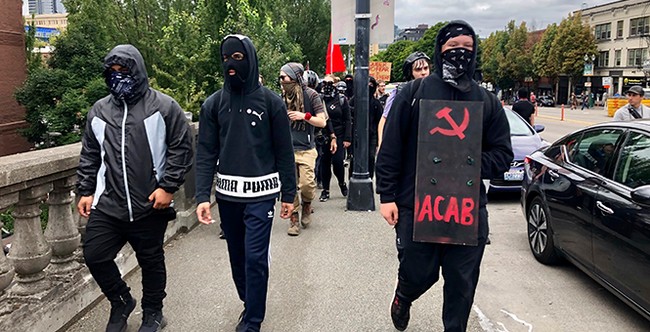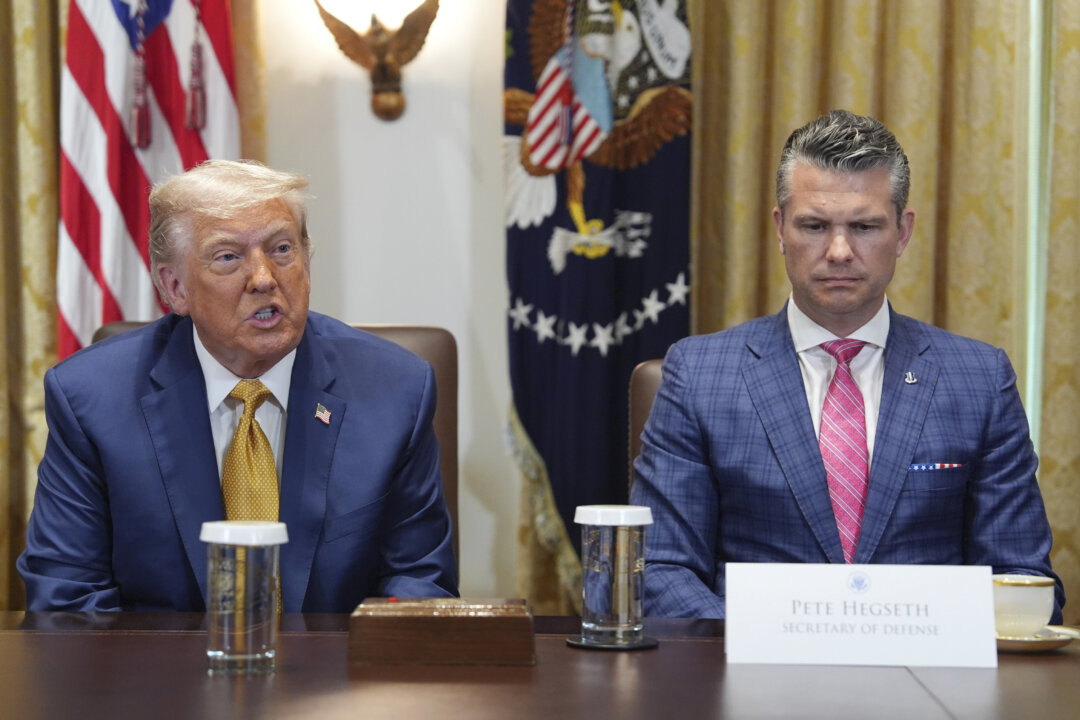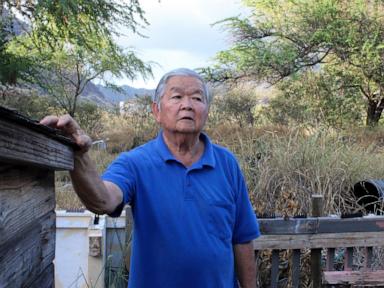The Justice Department’s handling of the Jeffrey Epstein case appears to constitute the rare controversy in which there are no innocuous explanations for what has unfolded. The possibilities range from bad to worse for everyone involved.
Let’s take them one by one.
The first possibility is that the most senior officials in the Trump administration — including President Donald Trump, Vice President JD Vance, Attorney General Pam Bondi and FBI Director Kash Patel exploited a terrible child sex trafficking tragedy for their personal political and financial gain. Some of these officials — perhaps all of them — knew that there was no elaborate government conspiracy or cover-up surrounding Epstein’s crimes or his death, but they intentionally misled millions of Americans for years to make money, get Trump back in the White House or both. And now that they’re in office, they’re dealing with the mess they made.
A second possibility is that the Justice Department’s review of the evidence in the Epstein case turned up references to Trump — on something akin to a “client list” or otherwise — and that the government is now engaged in a cover-up to protect the president. This cannot be ruled out given Trump’s social history with Epstein prior to Epstein’s arrest; Trump has previously been referenced in public documents released in court cases surrounding Epstein, though Trump has not been accused of any wrongdoing in the matter. Also potentially notable is Trump’s hyper-defensive attempt to turn the page at a Cabinet meeting last week by claiming that the public needed to ignore the conspiracy theories and move on — a striking position for a man who is famous for his own conspiracy theories and never moving on from things.
Still a third possibility is that the administration has been telling the truth from the start — that officials believed the conspiracy theories they had fueled and are only now discovering there is no Epstein “client list” and no evidence that Epstein blackmailed anyone. In this scenario, Trump and everyone else were all just as surprised by these revelations as many of Trump’s supporters are, and now they’re struggling with the fallout.
The first scenario would be shameful and inexcusable. The second would be an unprecedented and historic political and legal scandal. The third option may be the least nefarious, but even if we assume that is what we are dealing with, what we have seen lately is disturbing for entirely different reasons.
What we’ve seen: The most senior law enforcement officials in the country have been evasive, defensive and intemperate.
Bondi has struggled to defend her public comments, including her suggestion on Fox News in February that an Epstein client list was “sitting on my desk.” Her conduct and judgment were also called into question after her decision to invite conservative social media influencers to the White House to pick up and theatrically brandish binders containing secret-seeming documents that were in fact largely already public.
Patel, who helped spread Epstein theories for years, has suddenly become declarative and incurious — recently telling the people who were misled by him and others that the “conspiracy theories just aren’t true” and “never have been.”
Meanwhile FBI Deputy Director Dan Bongino refused to show up for work one day last week, as if he is a victim in this debacle rather than one of the central figures who brought it about in the first place.
The Department of Justice didn’t respond to a request for comment.
The resulting finger-pointing and fracturing of the MAGA coalition have obscured two facts that make all of this even more embarrassing.
The first is that this blunder was entirely self-inflicted: Trump and his officials brought this upon themselves by fanning the flames around the Epstein case — both before and after Trump returned to office — and raising expectations among their supporters about bombshell revelations that would stun them.
The second is that the administration’s public rollout concluding their inquiry was entirely within their control: Trump and his officials determined both the timing and the substance of the disclosures, yet they appear to have been blindsided by the blowback and are still struggling to contain it.
All of this raises a serious question: What happens if there is a law enforcement crisis that they didn’t create themselves? A terrorist attack at home or abroad, for instance, or a cyber-attack that seriously affects the nation’s technological infrastructure.
The attorney general and FBI leadership occupy positions that require people who can speak clearly, confidently and, above all, accurately in times of national crisis. Their credibility — their ability to command the nation’s trust — directly impacts the nation’s response to criminal threats both inside and outside the country’s borders, as well as the public’s confidence in the criminal justice system more broadly.
The recent events concerning the Epstein investigation, however, suggest the disturbing possibility that Trump’s current leadership team lacks the skills and credibility necessary to lead federal law enforcement when it will matter most.
The most obvious way to address the situation would have been for Bondi, Patel or both of them to give a detailed public address explaining what they did to investigate the Epstein case further; outlining what they found in their review; and — crucially — acknowledging that they had taken public positions that turned out to be seriously wrong. They appear to have been either unwilling to do that or incapable of doing it.
Meanwhile, the Trump administration’s explanation for why it cannot publicly disclose more information — beyond a terse and unsigned joint DOJ-FBI memo — makes little sense under the circumstances.
The memo claims that much of the underlying investigative material “is subject to court-ordered sealing,” but that is not true of all of it. And in any event, Epstein is dead, so the department has a very obvious argument available to go to the court and request that the material be unsealed — namely, that the defendant will not (literally cannot) be prejudiced, and that there is an overriding public interest in making some of the material available to the public.
The Trump administration’s claim that it is somehow prevented from doing more by legal constraints is hard to take seriously. After all, this is an administration that has chosen to openly disregard laws passed by Congress.
Bondi herself has been firing prosecutors and support staff in recent days in apparent violation of civil service laws. Earlier this year, she told tech companies that they can violate Congress’ ban on TikTok because the president decided they can under his “national security and foreign affairs powers” and because the attorney general has “plenary authority over all [federal] litigation, civil and criminal.” The idea that a court sealing order is somehow holding them back is not persuasive.
The long-term fallout remains to be seen, but in the near term, the suggestion among some Trump supporters that Bondi should be replaced does not make much political sense for Trump. The next attorney general would face even more questions on the Epstein investigation and the expectations for public disclosure would only grow, so replacing Bondi is not likely to provide Trump with much relief.
Steve Bannon has suggested that Trump should appoint a special prosecutor to probe the Epstein matter and the “deep state” further, but the proposal makes little sense as a legal or political matter.
Typically, a special counsel is named when the president or attorney general faces a serious conflict of interest, or at least the appearance of one. Epstein is dead and poses no electoral risk or conflict for Trump or Bondi. It is true that Bondi can be fired by Trump at any time, but Trump has already made clear that he is also willing to fire a special counsel that threatens him and his allies, so that person would be no more insulated and no more reliable than Bondi is.
In fact, Bondi is just as well-positioned to investigate Epstein and the “deep state” as a special counsel. She did not work in the federal government before becoming attorney general and has no reason to put a thumb on the scale for anyone in the government except Trump himself. Another layer of bureaucracy and investigation would simply prolong the story and the controversy over Epstein’s dealings, provide more for Epstein conspiracists to fixate over and string people along even further, potentially for years to come.
For someone like Bannon, that may not be an accident: His proposal provides a convenient short-term political escape hatch for Trump that would allow him to sidestep the sharp questions that some of his most ardent supporters are currently directing toward him and his appointees.
The simple truth of the matter is that there is no quick-fix solution here. Perhaps Trump’s DOJ and FBI leadership can tamp down the controversy with a more credible and comprehensive account of what they did and what they found, though frankly that seems doubtful at this point. Perhaps they can all simply weather the storm and hope people move on from this controversy to the next inevitable one.
Regardless, this was the first public test of Trump’s DOJ and FBI leadership in something approximating a crisis, even if it was one of their own making. It does not bode well for the future.
.png)















 English (US)
English (US)